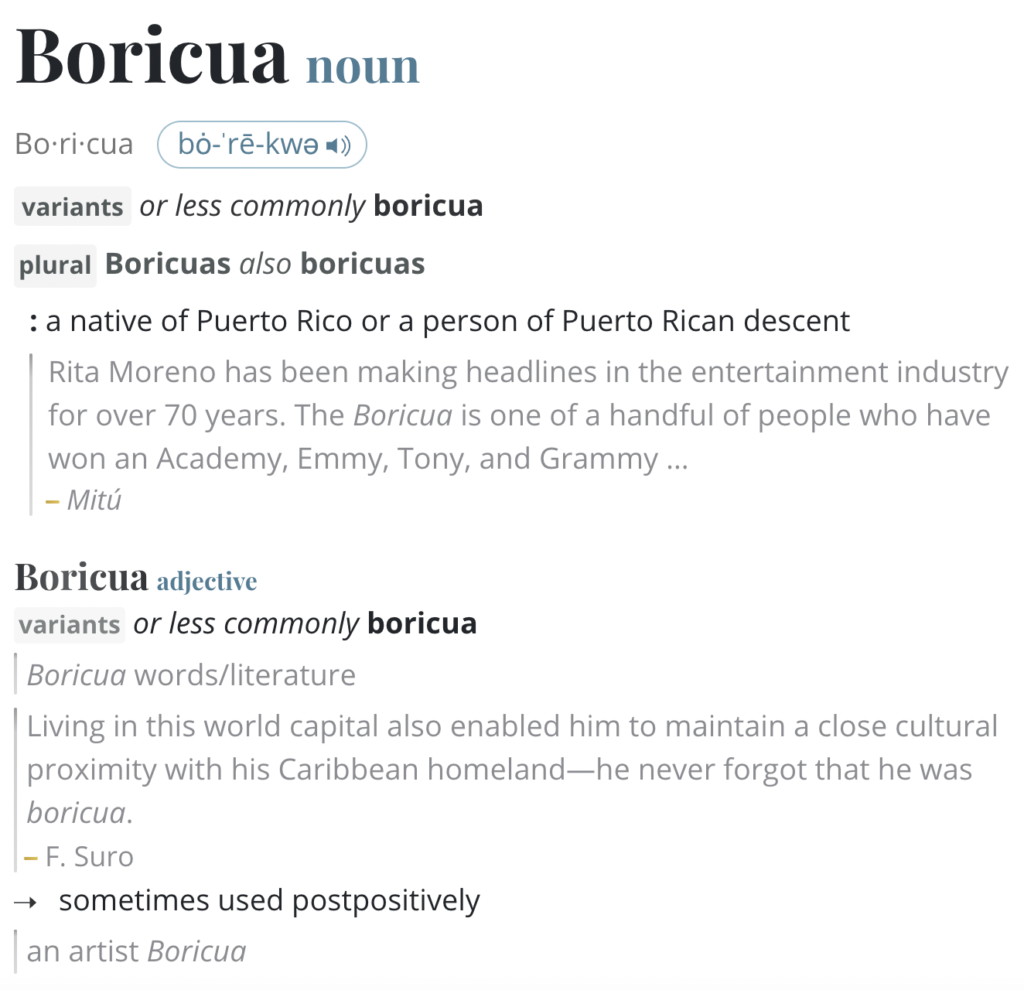The term “Boricua” is a word used to denote people from Puerto Rico (natively known as Boriquén, Borinquén) or people of Puerto Rican descent; its origin is said to have derived from the indigenous people of the island, the Taíno.

Who Were the Taíno?
The taíno were an indigenous group from the Caribbean who lived on islands such as the Bahamas, Cuba, Hispañola (Dominican Republic, Haiti), Jamaica, Puerto Rico, and in the lesser Antilles. In Puerto Rico, the taíno known as boricua, greeted Christopher Colombus upon his arrival in 1493. Their society was mainly agricultural and the island was divided into various settlements overseen by caciques (the tribal chiefs). For centuries it was taught that the Taíno were completely wiped out by extinction due to slavery and disease on the islands. However, recent genetic testing shows that the legacy of the Taíno live within the descendants in their genes and mainly in the indigenous mtDNA haplogroups inherited by not only Puerto Ricans but others in the Caribbean as well. There are many efforts to revive parts of the Taíno culture such as language, traditions, and other customs by community members invested in bringing back lost elements of the native culture.

Why did I chose this word for my website?
I chose to include the word Boricua in my website name because it is an important element of my cultural background and upbringing. It is a way to actively honor my ancestors, hold firmly onto my identity, and to make sure the future generations continue to use words inherited from our ancestors to continue identify ourselves in and out of our community. Though the Taíno society as it was once known pre-Colombian contact does not currently exist, Puerto Ricans are extremely proud to continue using this term to identity themselves/ourselves.
